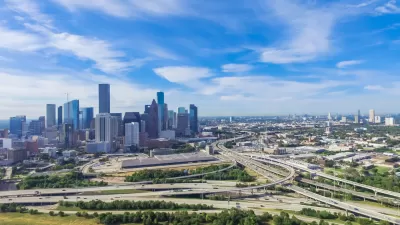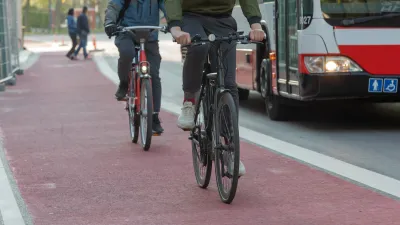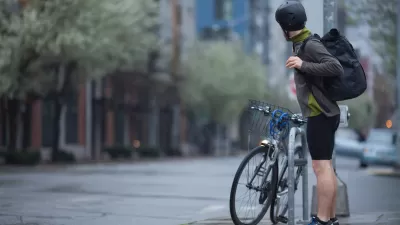What could the city look like if budget and bureaucracy were no object?

In interviews with Houston Public Media, Houston mobility advocates and residents told Michael Hagerty what changes they would make to their city’s streets if they could.
One listener suggested getting rid of freeways inside the 610 loop and replacing them with surface boulevards that offer the potential for more uses.
Another wondered whether elevating roadways could prevent further road expansions. One listener wants to replace a local highway with a high-speed rail system complete with rail and bus connections to other destinations.
Some respondents criticized traffic calming measures, expressing the common concern that they negatively impact local businesses (bike lanes and other road safety infrastructure have been shown to be good for business). One listener called for adding a left turn lane and banning right turns on red on West Dallas Street to improve pedestrian safety.
Ultimately, it seems that Houston residents have opinions on their roadways — and many of them want to see safety improvements, pedestrian and bike infrastructure, and more transit options.
FULL STORY: If you could wave a wand and redesign a Houston road, what would you change and why?

Alabama: Trump Terminates Settlements for Black Communities Harmed By Raw Sewage
Trump deemed the landmark civil rights agreement “illegal DEI and environmental justice policy.”

Planetizen Federal Action Tracker
A weekly monitor of how Trump’s orders and actions are impacting planners and planning in America.

The 120 Year Old Tiny Home Villages That Sheltered San Francisco’s Earthquake Refugees
More than a century ago, San Francisco mobilized to house thousands of residents displaced by the 1906 earthquake. Could their strategy offer a model for the present?

LA’s Tree Emergency Goes Beyond Vandalism
After a vandal destroyed dozens of downtown LA trees, Mayor Karen Bass vowed to replace them. Days later, she slashed the city’s tree budget.

Sacramento Leads Nation With Bus-Mounted Bike Lane Enforcement Cameras
The city is the first to use its bus-mounted traffic enforcement system to cite drivers who park or drive in bike lanes.

Seattle Voters Approve Social Housing Referendum
Voters approved a corporate tax to fund the city’s housing authority despite an opposition campaign funded by Amazon and Microsoft.
Urban Design for Planners 1: Software Tools
This six-course series explores essential urban design concepts using open source software and equips planners with the tools they need to participate fully in the urban design process.
Planning for Universal Design
Learn the tools for implementing Universal Design in planning regulations.
Ada County Highway District
Clanton & Associates, Inc.
Jessamine County Fiscal Court
Institute for Housing and Urban Development Studies (IHS)
City of Grandview
Harvard GSD Executive Education
Toledo-Lucas County Plan Commissions
Salt Lake City
NYU Wagner Graduate School of Public Service




























